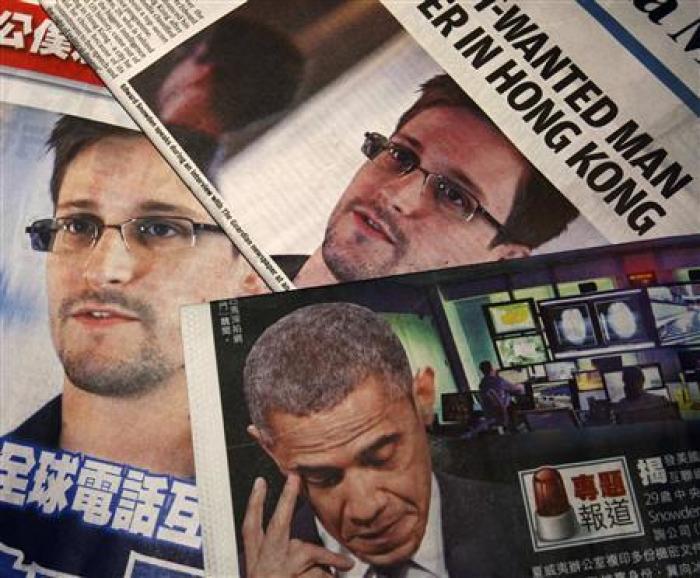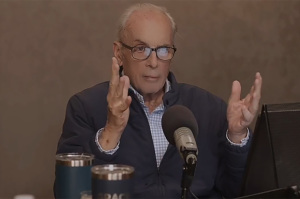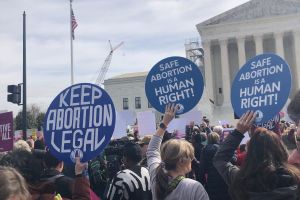Judge Rules Against NSA Spying Program; Should Government Collect Your Phone, Internet Information?

U.S. District Court Judge Richard Leon found that the National Security Agency (NSA) program which collects information on nearly all telephone calls made to, from, or within the United States is likely unconstitutional. Activists welcomed this decision as a step toward clearing up the "third party doctrine" and securing privacy for Americans in the digital age.
"If we don't roll back" the government's power to collect personal data, "the Fourth Amendment is going to be a hollow protection," Julian Sanchez, a research fellow at the Cato Institute, told The Christian Post on Tuesday. Sanchez explained the companies want to assure customers "that using online services doesn't mean you've handed the government your diary."
Judge Leon did not issue a final ruling on the case Monday. "Acting on a lawsuit brought by conservative legal activist Larry Klayman, Leon issued a preliminary injunction barring the NSA from collecting so-called metadata pertaining to the Verizon accounts of Klayman and one of his clients," Politico reported. Leon waived the injunction, however, allowing the NSA program to continue until a higher court ruled on it.
The NSA's phone record-gathering program has continued for seven years, repeatedly approved by the Foreign Intelligence Surveillance Court (FISA). Sanchez argued that these decisions need to be questions, because the FISA court only ever hears one side of the argument. In a normal court, "someone is prosecuted, and their lawyers get to say 'we don't think this is reasonable,'" Sanchez explained. "That' doesn't ever happen in the FISA court."
The "Third Party Doctrine," Sanchez explained, generated from the 1979 case Smith vs. Maryland. In that case, Michael Lee Smith robbed a woman and started placing obscene phone calls to her. When the police asked the phone company to trace the woman's line, they caught the culprit. Smith argued this was an illegal search, but the Supreme Court ruled that, since each caller knows the phone company keeps records of the numbers they dial, he assumes the risk that they might show that information to someone else.
"When you knowingly convey information to some third party, and understand that they're keeping it, you abandon your expectation of privacy and the protection of the Fourth Amendment," Sanchez explained. In 1979, this may not have caused too much of a headache, but today, "our entire lives now are held in a record by some third party somewhere," Sanchez said, mentioning websites, texts, emails, and even Dropbox or Google Drive.
"Even the contents of some of those messages are held to be public under the Third Party Doctrine," Sanchez explained. "Even a text or an email doesn't have protection under this," so it is important for the courts to challenge this doctrine.
Sanchez interpreted Leon's decision as opening the door for discussion on this issue, one that has constitutional implications. "If the courts don't say these third parties have to have limits, then we are essentially saying the Constitution and the Fourth Amendment don't pose any obstacle to indiscriminate vacuuming up of data that gives a detailed portrait of everyone's lives," he argued. "This is one of the most direct indications that we're starting to see that pushback."
While the National Security Agency declined requests to comment, their spokesperson directed CP to the Justice Department. "We've seen the opinion and are studying it," Justice Department National Security Division Spokesman Andrew C. Ames wrote in an email statement. "We believe the program is constitutional as previous judges have found."
"I don't have that much trust in my government anymore – and that's an awful shame, but it is the absolute truth," Tony Katz, radio host, author, and political commentator, told CP. When it comes to the NSA phone records issue, he said "I believe in putting an end to that immediately."
"If you want my information, get a warrant just like you're supposed to," Katz declared. While he acknowledged the importance of national security, he emphasized personal liberty as more important. "If the choice is between security and liberty, I'll take liberty because Obama has proven he can't provide security," he quipped.
Katz argued that "people who have some kind of faith" understand that the world is not the utopia they would prefer it to be. "People who believe in something greater than themselves are usually able to get through that," he explained.





























